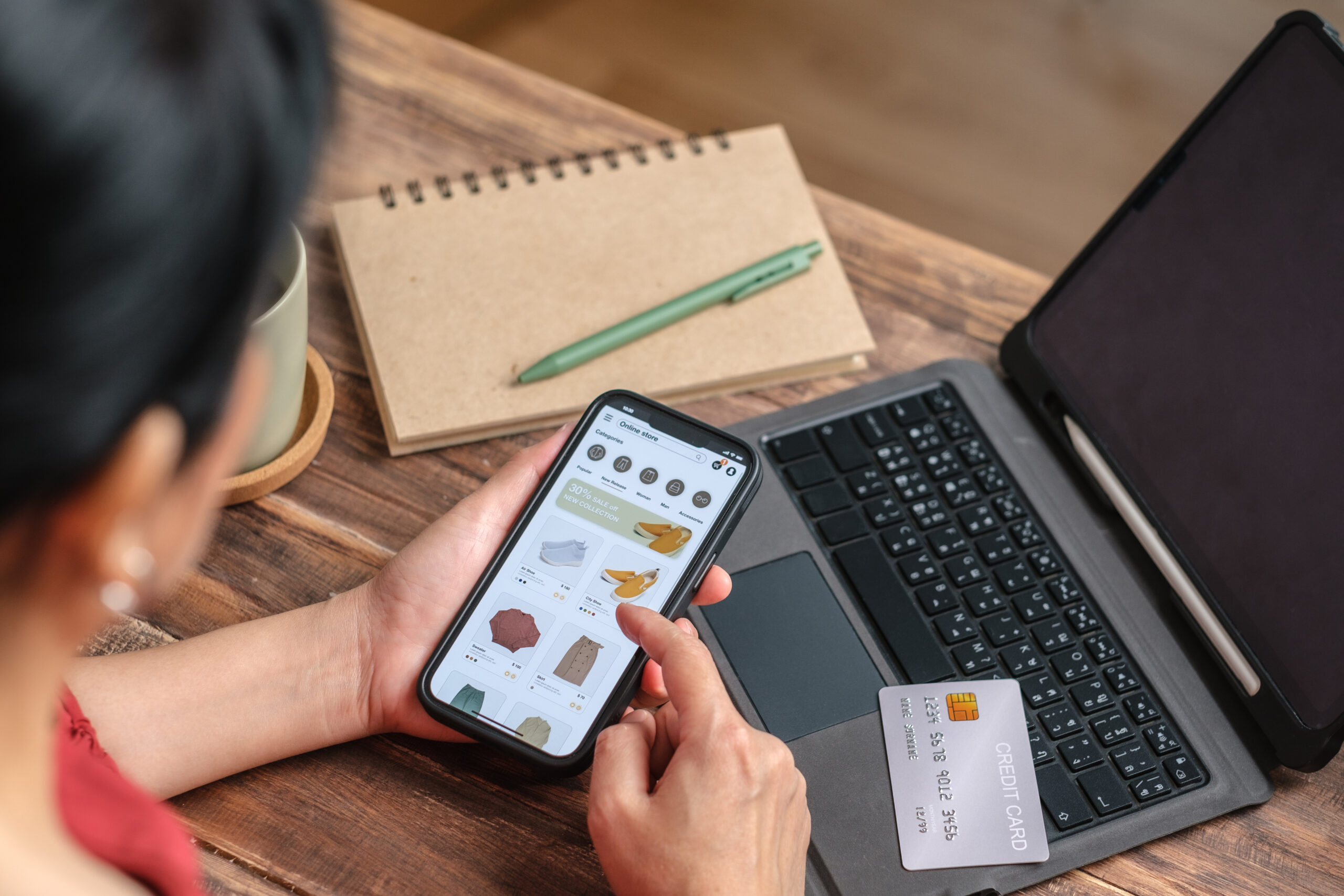The health crisis has turned our behavior upside down, bringing lasting changes to some of our habits, such as the way we shop. The big winner of this period is undoubtedly e-commerce, which exploded in 2020 and continues to grow every year. But while all eyes are on websites, another tool could well improve the performance of small retailers…
2020: the golden age of e-commerce2020: the golden age of e-commerce
Containment and sanitary restrictions have forced us to rethink the way we shop. Remote commerce exploded during this period, rising by 24% worldwide to $4,248 billion. The year 2020 marks a quantum leap for online commerce. Some experts believe that the health crisis has given e-commerce a 5-year lead over forecasts.
M-commerce, an opportunity to be seized
M-commerce or mobile-commerce represents all purchases made on a mobile device (smartphone or tablet). According to Forbes, the expansion of e-commerce in 2021 is largely due to m-commerce. Indeed, Statista estimates that mobile will account for around 73% of all e-commerce sales worldwide in 2021. In concrete terms, this means that worldwide, nearly three out of every four dollars spent on online purchases comes from mobile devices, and this rate is accelerating; Neglecting m-commerce is therefore a strategic mistake for retailers.
User experience and purchasing on mobile phones
To fully grasp the future prospects offered by m-commerce, it’s vital to consider the mobile shopping experience and consumer expectations. Dynamic Yield found that 67% of those surveyed cited “too small pages and links” as a barrier to mobile shopping. What’s more, according to Google research, 62% of users who have a bad experience when shopping on mobile will buy elsewhere.
And what about mobile applications?
The strong growth of m-commerce and the centrality of the shopping experience naturally lead us to look at the advantages that mobile applications can offer retailers:
- Improved user experience (fluid and ergonomic path): the Toptal report indicates that this aspect encourages users to make a purchase. This leads 9 out of 10 customers to renew their business in the future, resulting in a higher return on investment.
- Immediate connection to their target: the opportunity to reach customers by being present directly on the device with which they interact most: smartphones.
- Push notifications : this powerful communication tool lets you stay connected to your customers at all times by sending them free messages via the mobile app.
- Indirect advertising: the presence of the brand via the mini logo on customers’ smartphones can encourage them to make further purchases.
- Customer loyalty: mobile applications enable us to get closer to our customers and fully meet their expectations.
Simply having a responsive site (one that adapts to different screen sizes) is therefore not enough to jump on the m-commerce bandwagon and satisfy consumer expectations; Note also that mobile app installations are up 73% and in-app spending is up 116% in France in 2021.
The future of e-commerce will be played out to a large extent on mobile applications, which will soon become a necessity for retailers wishing to perpetuate their business.
The myDev team




